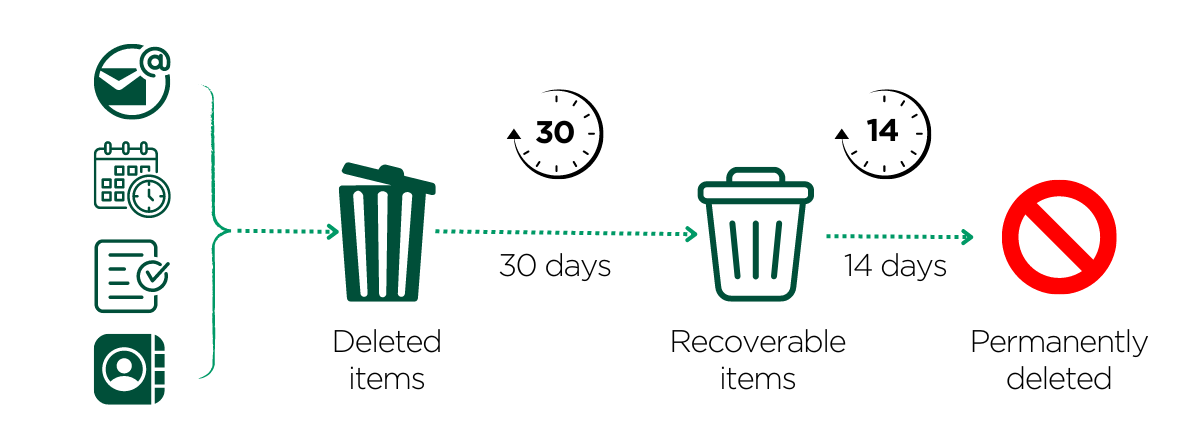There’s an upcoming change to the email retention policy for MSU Spartan Mail accounts. Effective April 3, 2024, the duration deleted items are retained within your mailbox will be reduced. You only need to act in response to this change if there are items in your Deleted Items folder you want to save.
What is changing?
Previously, emails and other items consigned to the Deleted Items folder in your MSU Spartan Mail account were retained indefinitely. However, starting April 3, 2024, any items placed in the Deleted Items folder, along with its subfolders, will be automatically transferred to the Recoverable Items folder after a period of 30 days. This change applies to various Outlook items, including emails, calendar events, appointments, tasks, notes, and contacts.
It’s important to note that items in the Recoverable Items folder will only be kept for an additional 14 days before being permanently deleted. Therefore, the total retention period for items in the Deleted Items and Recoverable Items folders is 44 days.
What do you need to do?
To ensure you don’t lose any important emails or other items, please take the following steps:
- Review your deleted items: Check your Deleted Items folder and any subfolders within it for any items you wish to retain.
- Move important items: If there are emails or other items you want to keep, move them to a folder outside of the Deleted Items folder before April 3, 2024.
- Check mailbox rules: Review any custom mailbox rules you have set up that may automatically move items to the Deleted Items folder or any subfolders within.
Why is this change happening?
Our commitment to MSU’s strategic plan drives these efforts:
- Stewardship and sustainability: This change reduces MSU’s cloud storage footprint, resulting in a significant reduction in the physical resources and energy needed to maintain unused cloud data. This contributes to a reduced environmental footprint and minimizes the need to purchase additional storage, improving resource utilization.
- Data governance and best practices: This change ensures our email management is in line with responsible data governance practices and industry norms. It also aligns MSU with many peer universities.
Where can you learn more?
For additional information and guidance, please review the following resources:



